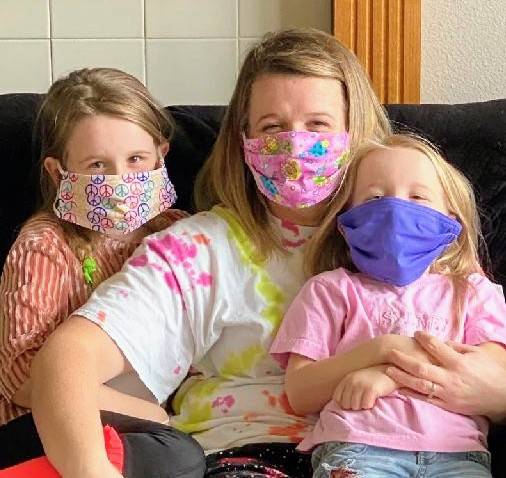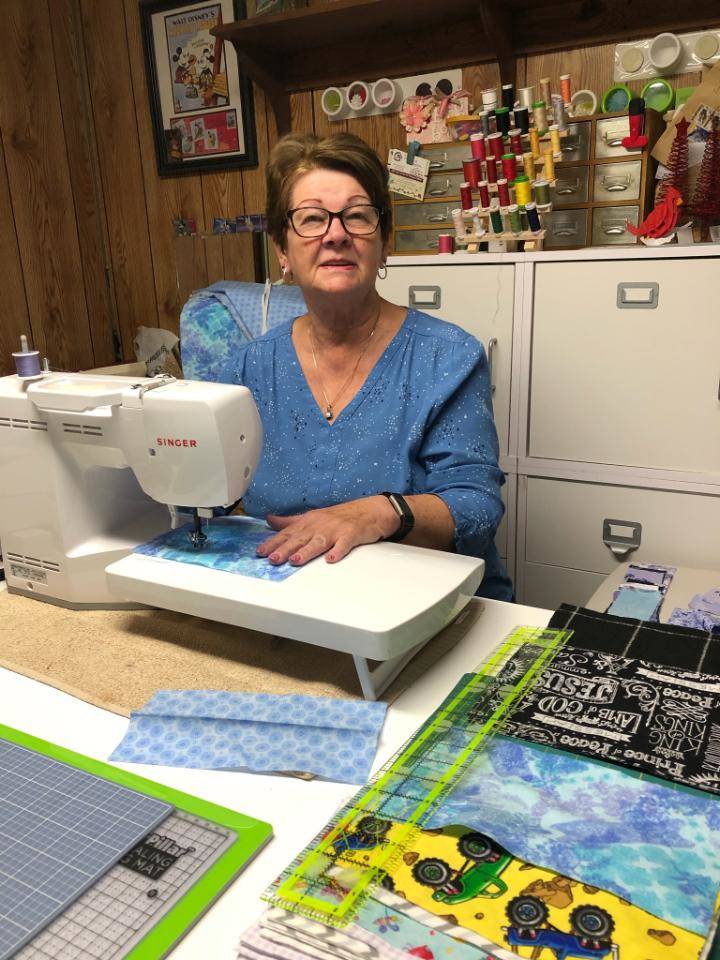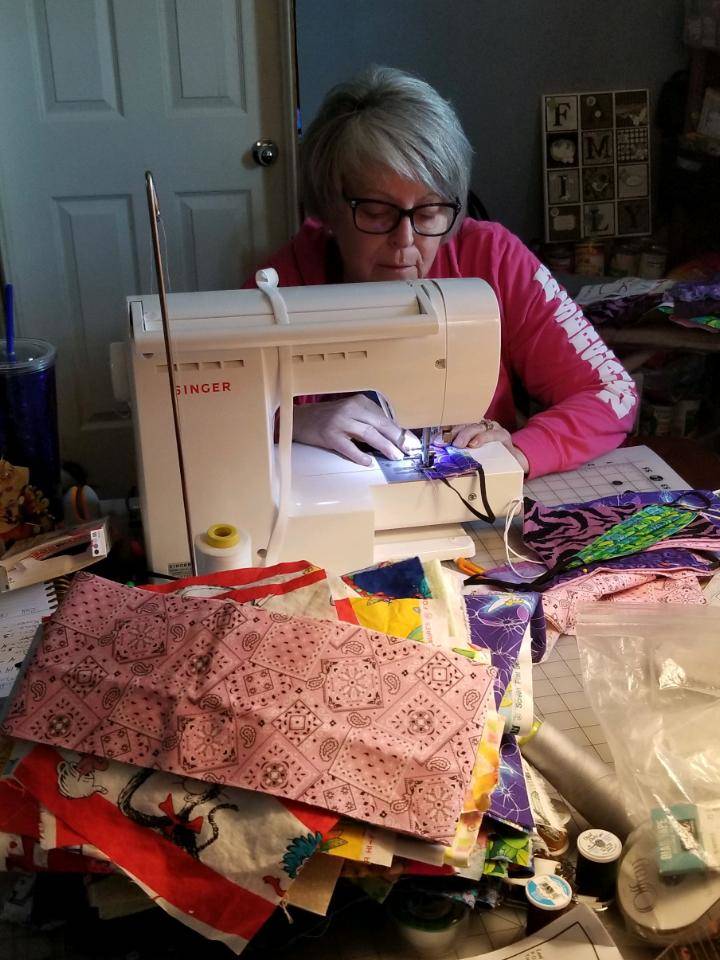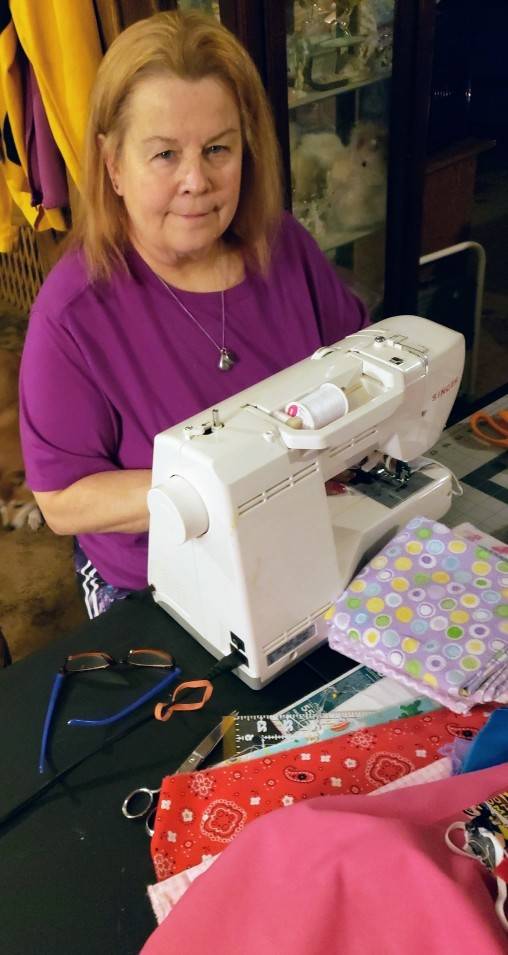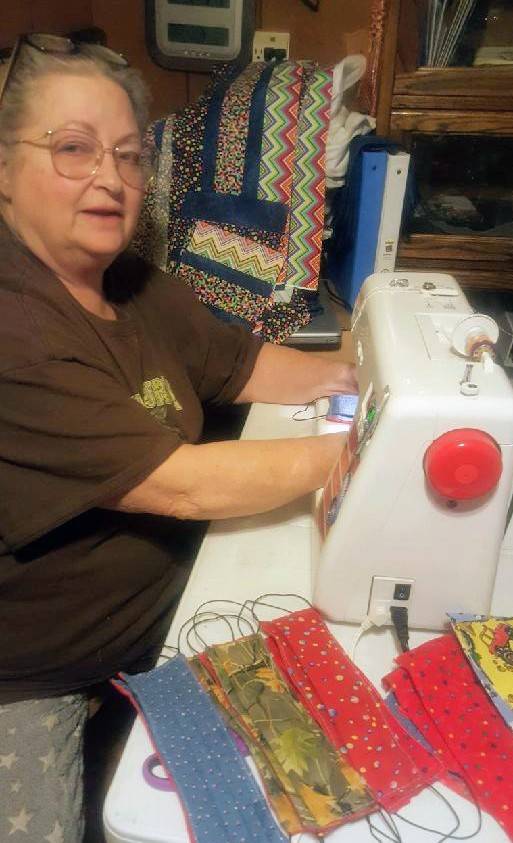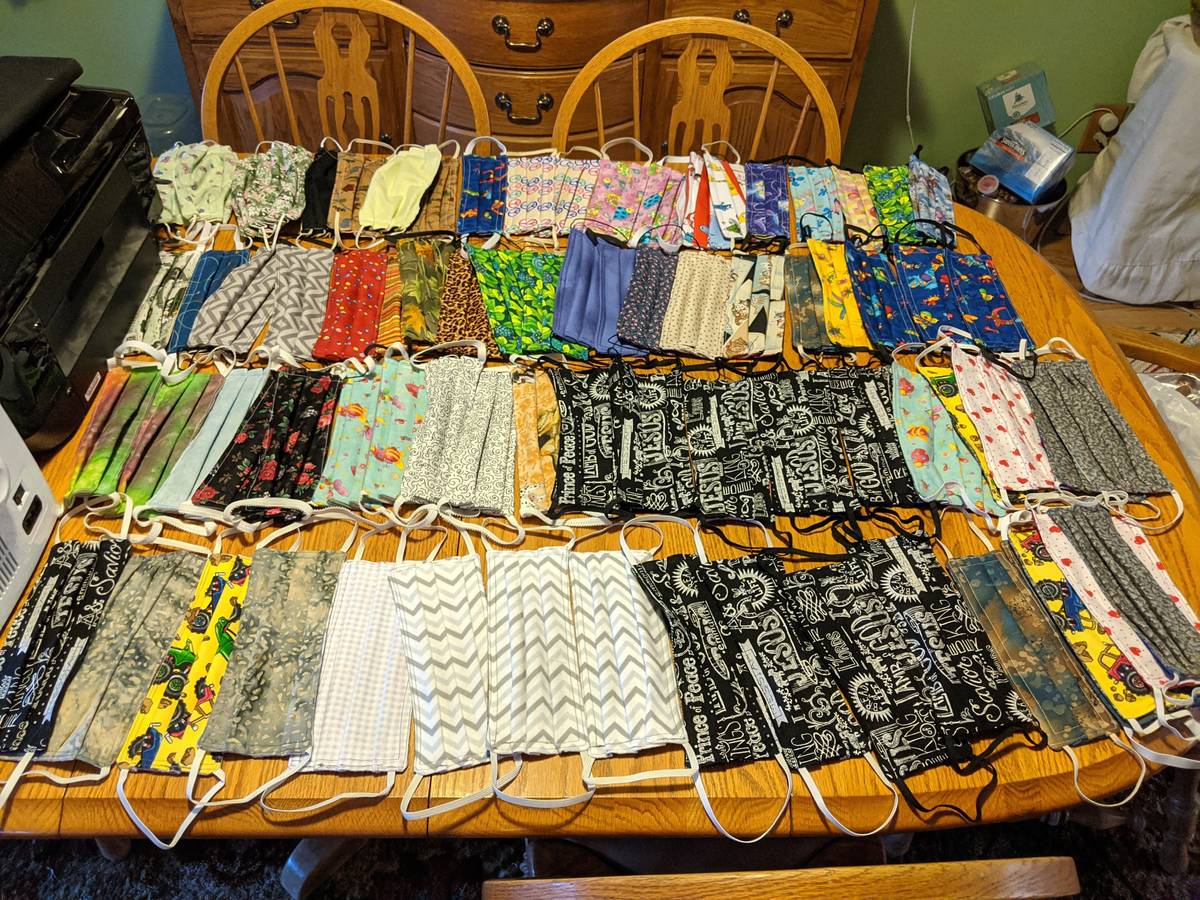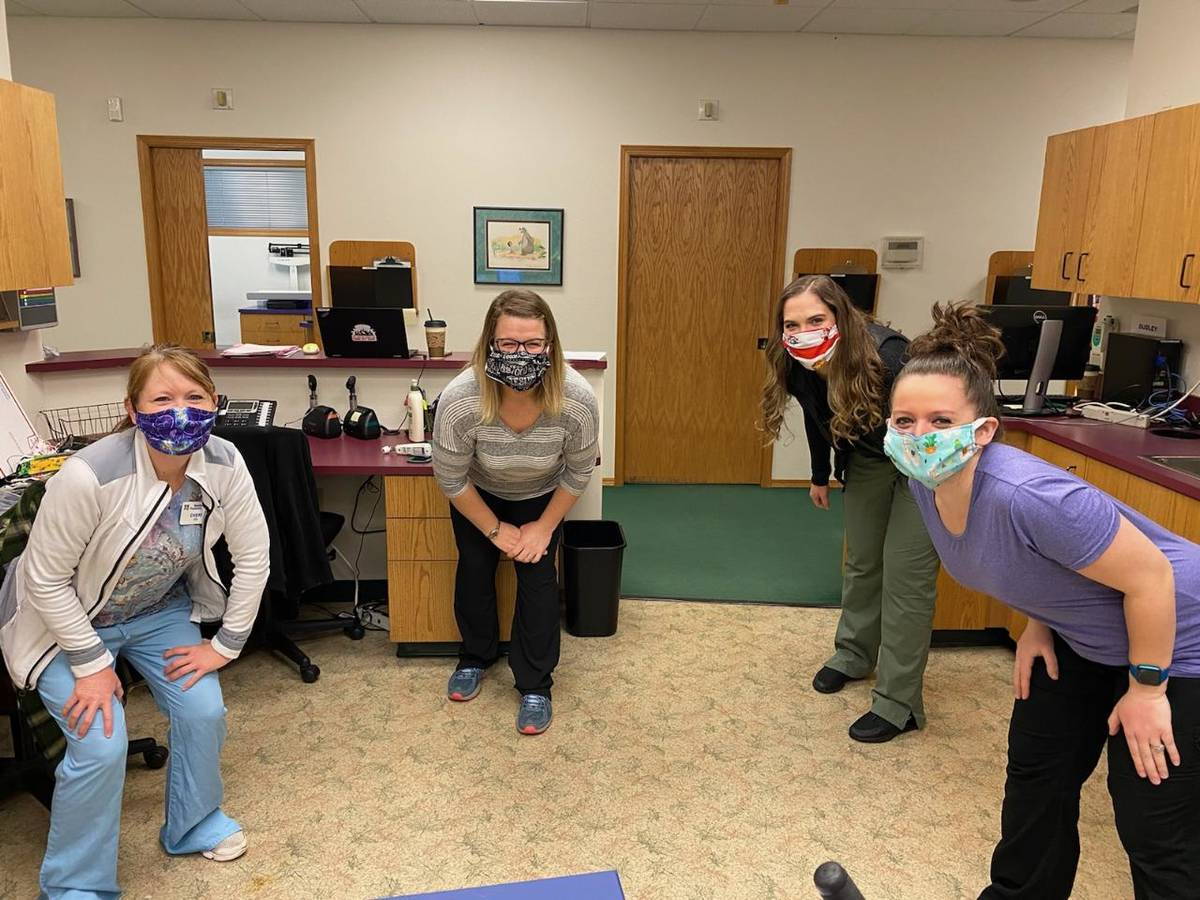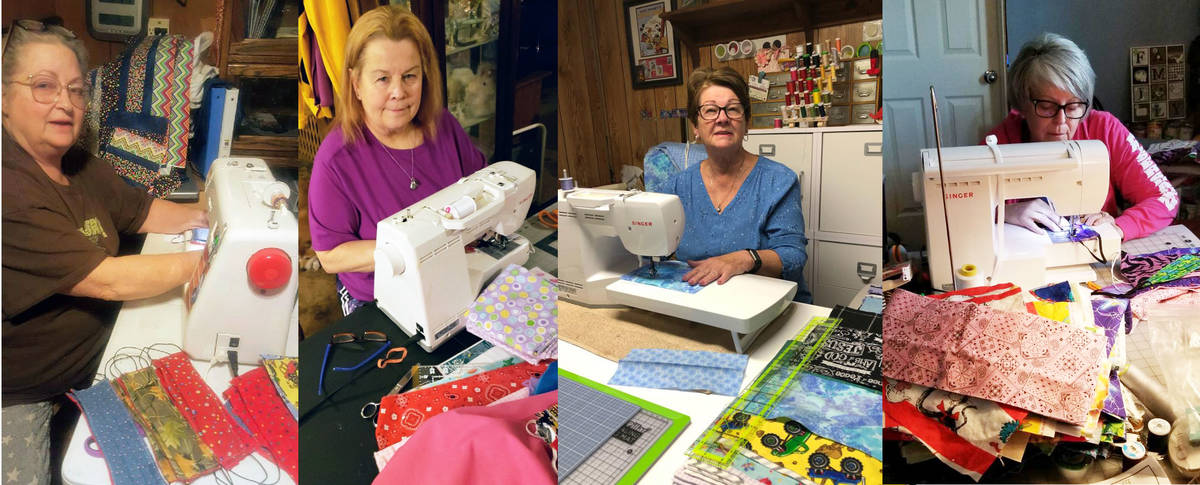Tonopah quilting group sews and donates face masks
Editor’s Note: This is the first in a two-part series of groups and individuals making face masks in Nye County for health care workers, first responders and others during the COVID-19 pandemic.
The members of the Central Nevada Grange #23 quilters group in Tonopah haven’t seen each other in person since the first of March, but that hasn’t stopped them from working together to make and deliver hundreds of fabric face masks to hospitals, clinics, the post office and even local restaurants to help stop the spread of COVID-19.
Many of the women in the small group are senior citizens, said member Deb Cobb, who first proposed the idea to the group. Cobb said they canceled their regular Tuesday quilting meetings in early March to observe social distancing and keep each other safe. For the next few weeks they worked on other projects at home and then Cobb got an urgent plea from her daughter Ciara Sallee, who grew up in Tonopah and now works as a pediatric nurse at a clinic in Chehalis, Washington. As Washington state experienced skyrocketing numbers of COVID-19 cases, masks were in short supply. When Sallee got word that she and her co-workers could use approved homemade masks, she found a pattern online and asked if her mother’s quilting group could help.
“We asked how many,” Cobb said. “(Ciara) replied, as many as you can send, what we don’t use we will share with others who are in the same desperate situation.” That set the project in motion. “Texts went out among the quilters and everyone rounded up materials, leaving them in bags on front porches to pick up and share what was needed… We put the pedal to the floor and started sewing.”
In less than 48 hours, Cobb said, the women had coordinated by phone and social media, distributed supplies among themselves, cut, sewn, washed and prepared 100 masks for delivery without ever actually meeting in person. The masks were in Chehalis and being put to work within a few days.
Realizing what a difference they could make at such a difficult time gave them purpose. “God used these idle hands and huge hearts to serve those on the front lines,” Cobb said.
According to Tara Parker-Pope, editor of the New York Times consumer health website, Sallee couldn’t have gone to a better source. “If you are lucky enough to know a quilter, ask them to make you a mask,” Parker-Pope wrote on Monday, citing a study noting “that quilters tend to use high-quality, high-thread count cotton. The best homemade masks in [this] study were as good as surgical masks or slightly better, testing in the range of 70 to 79 percent filtration. Homemade masks that used flimsier fabric tested as low as 1 percent filtration.”
Individual results will vary, Parker-Pope stressed, due to variations in fabric quality and adjustment and fit of the masks.
When the quilters of the Central Nevada Grange finished the Chehalis project, they kept right on sewing masks, only hampered by delays in receiving essential supplies such as elastic. When they didn’t have enough cotton flannel, “we even tore flannel shirts apart,” Cobb said, to get the pieces they needed for their work. “They’re very colorful.”
When the masks are finished, they are washed and sealed in plastic bags, ready to be delivered. Sometimes the women hang the bags on doorknobs or leave them on porches or front steps to observe social distancing. They’ve delivered masks to two local health clinics, the post office, Raley’s grocery store, Tonopah Primary Care, local EMS providers, and “even the pizza place,” Cobb said. She estimates they’ve distributed well over 200 masks since they got started.
All masks are donated, never sold, said Cobb, who calls the project Operation Hope and Health. “This is a labor of love.”
The members of the team are Deb Cobb, Donna Galli, Fawn DaVilla, Wanda Adams, Lori Alsup (quilt leader and organizer of the Grange), Laurie Sorhouet, and Karen Epperly. And they would be happy to have more hands at the needle. “Anybody wants to sew, the more the better,” Cobb said. Anyone interested can message her through her page on Facebook.
The group is also accepting donations of good quality, all-cotton flannel fabric and elastic as they are finding it difficult to source these items due to high demand. As quilters, the regular cotton fabric is something they have on hand, it’s the flannel they need, Cobb said, and narrow, flat elastic. Cobb estimates the group has already used over 150 yards of elastic since they started.
The pattern used by the Nevada Grange #23 quilters can be found here: https://turbanproject.com/face-masks-pdfs
For basic instructions on how to make a mask from items you may have around your house, the Center for Disease Control has published some here: https://www.cdc.gov/coronavirus/2019-ncov/prevent-getting-sick/diy-cloth-face-coverings.html


